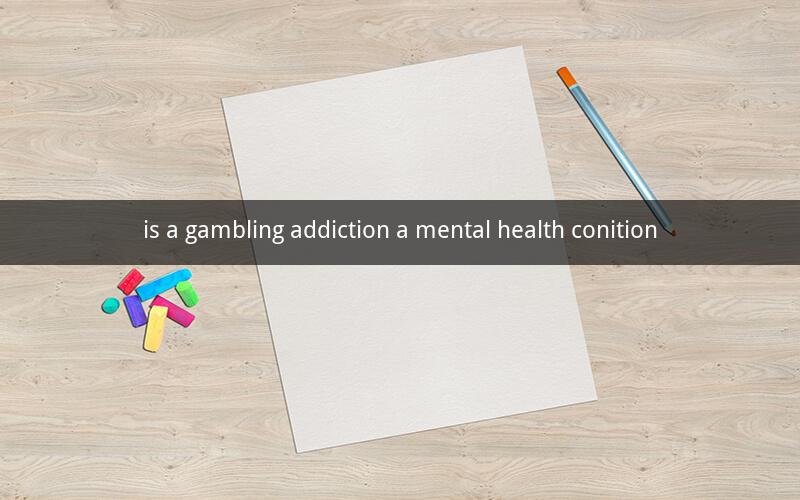
Table of Contents
1. Introduction to Gambling Addiction
2. Understanding Mental Health Conditions
3. The Link Between Gambling and Mental Health
4. Signs and Symptoms of Gambling Addiction
5. Psychological Effects of Gambling Addiction
6. The Social and Economic Impact of Gambling Addiction
7. Treatment and Support for Gambling Addiction
8. Prevention and Education on Gambling Addiction
9. Conclusion
1. Introduction to Gambling Addiction
Gambling addiction, often referred to as problem gambling or compulsive gambling, is a condition characterized by an irresistible urge to gamble despite the negative consequences. It affects individuals of all ages, backgrounds, and socioeconomic statuses. This section will provide an overview of gambling addiction, its prevalence, and its impact on individuals and society.
2. Understanding Mental Health Conditions
Mental health conditions encompass a wide range of disorders that affect a person's mood, thinking, and behavior. These conditions can range from mild to severe and can impact an individual's ability to function in daily life. Mental health conditions are complex and can be influenced by various factors, including genetics, environment, and personal experiences.
3. The Link Between Gambling and Mental Health
The relationship between gambling and mental health is well-documented. Research indicates that individuals with certain mental health conditions, such as depression, anxiety, and substance abuse disorders, are at a higher risk of developing gambling addiction. Conversely, individuals with gambling addiction may experience mental health issues as a result of their compulsive behavior.
4. Signs and Symptoms of Gambling Addiction
Identifying gambling addiction can be challenging, as it often progresses in stages. Common signs and symptoms include:
- Inability to control gambling behavior, despite negative consequences
- Spending increasing amounts of time and money on gambling
- Feeling restless or irritable when not gambling
- Lying to family and friends about gambling activities
- Continuing to gamble despite financial, legal, or relationship problems
- Using gambling as a way to cope with stress or emotional pain
5. Psychological Effects of Gambling Addiction
Gambling addiction can have profound psychological effects on individuals. These include:
- Depression and anxiety
- Low self-esteem and self-worth
- Guilt and shame
- Paranoia and suspicion
- Suicidal thoughts
6. The Social and Economic Impact of Gambling Addiction
The social and economic impact of gambling addiction is significant. It can lead to:
- Financial ruin
- Relationship breakdowns
- Loss of employment
- Legal problems
- Increased healthcare costs
7. Treatment and Support for Gambling Addiction
Treatment for gambling addiction typically involves a combination of therapy, support groups, and lifestyle changes. Common treatment approaches include:
- Cognitive-behavioral therapy (CBT)
- Contingency management
- Family therapy
- Support groups, such as Gamblers Anonymous
8. Prevention and Education on Gambling Addiction
Preventing gambling addiction involves raising awareness about the risks and promoting responsible gambling practices. This can be achieved through:
- Public education campaigns
- Regulations on advertising and marketing
- Age verification requirements
- Responsible gambling resources
9. Conclusion
Gambling addiction is a complex mental health condition that can have devastating consequences. Understanding the link between gambling and mental health is crucial for early identification, treatment, and prevention. By promoting awareness and providing support, we can help individuals overcome gambling addiction and lead healthier, more fulfilling lives.
---
10 Questions and Answers
Question 1: What is the difference between problem gambling and gambling addiction?
Answer: Problem gambling refers to any gambling behavior that causes distress or harm, while gambling addiction is a severe form of problem gambling characterized by an irresistible urge to gamble despite negative consequences.
Question 2: Can someone develop a gambling addiction without any mental health issues?
Answer: While individuals with certain mental health conditions are at a higher risk of developing gambling addiction, it is possible for someone without mental health issues to become addicted to gambling.
Question 3: How can I tell if I or someone I know has a gambling addiction?
Answer: Look for signs such as increased time and money spent on gambling, lying about gambling activities, and experiencing negative consequences as a result of gambling.
Question 4: What is cognitive-behavioral therapy (CBT)?
Answer: CBT is a type of therapy that helps individuals change negative thought patterns and behaviors. It is often used to treat gambling addiction by helping individuals develop healthier coping mechanisms.
Question 5: Are there any medications that can help treat gambling addiction?
Answer: While there are no medications specifically designed to treat gambling addiction, certain medications may be used to address underlying mental health conditions that contribute to the addiction.
Question 6: Can family therapy help with gambling addiction?
Answer: Yes, family therapy can be beneficial in addressing the impact of gambling addiction on relationships and helping family members cope with the challenges they face.
Question 7: What are some of the long-term effects of gambling addiction?
Answer: Long-term effects of gambling addiction can include financial ruin, relationship breakdowns, legal problems, and increased healthcare costs.
Question 8: How can I support someone who is struggling with a gambling addiction?
Answer: Offer support and understanding, encourage them to seek help, and be patient and compassionate throughout their recovery journey.
Question 9: Is there a genetic component to gambling addiction?
Answer: Yes, research suggests that there is a genetic component to gambling addiction, meaning that individuals may inherit a predisposition to the condition.
Question 10: Can gambling addiction be cured?
Answer: While there is no cure for gambling addiction, it can be effectively treated and managed through therapy, support groups, and lifestyle changes.